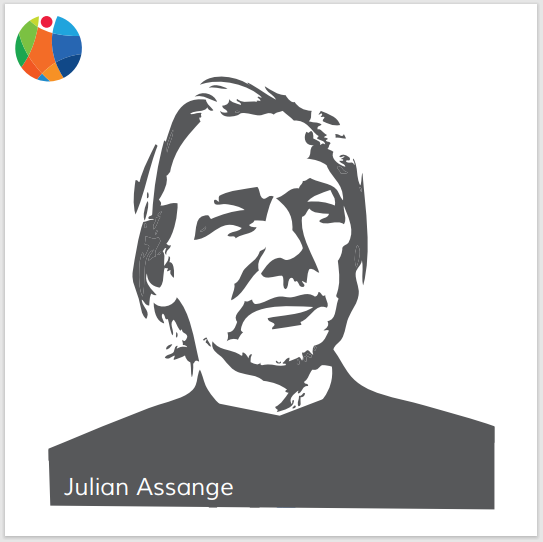“The first casualty of war is truth,” said US Senator Hiram W. Johnson of California in 1929, during the debate on the ratification of the Kellogg-Briand pact, a noble but ultimately unsuccessful attempt to ban war. Reflecting on World War I, which had ended a decade earlier, Johnson continued: “It begins, as we have been accustomed to until recently, with that form of propaganda in which […] patriotism is exalted and lies are told to make people hungry for war and to make them feel the desire to fight. We’ve seen it in the past; it will happen again in the future.
Time and again, Hiram Johnson has been proved right. The US government’s impulse to control information and manipulate the citizenry to support war is deeply entrenched. The last twenty years, dominated by the so-called “war on terror”, are no exception. Sophisticated public relations campaigns, compliant media and the Pentagon’s omnipresent propaganda machine operate in tandem to “manufacture consensus”. This is how renowned scholar Noam Chomsky and the late Professor Ed Herman put it in the title of their groundbreaking book “The Guardians of Freedom”, borrowing the phrase from Walter Lippman, considered the father of public relations.
One outlet that has consistently challenged the warmongering narrative pushed by the US government under both Republican and Democratic presidents has been the whistleblower website WikiLeaks. WikiLeaks gained international attention in 2010 after publishing a series of leaked documents containing classified material from the US military. The documents included numerous reports of civilian killings and other war crimes committed in Iraq and Afghanistan, as well as a shocking video of a massacre by a US helicopter gunship of a dozen civilians on a Baghdad city street, including a Reuters news agency cameraman and his driver. WikiLeaks titled the video “Collateral Murder”.
The New York Times and other newspapers partnered with the whistleblower website to publish stories based on the leaks. This further increased attention on WikiLeaks founder and editor-in-chief Julian Assange. In December 2010, two months after the release of the “Collateral Murder” video, then Vice President Joe Biden said during an interview with NBC News that Assange was “closer to high-tech terrorism than the Pentagon Papers”. Biden was referring to the series of classified documents released by Daniel Ellsberg in 1971 that revealed the lies the Pentagon spread for many years about US involvement in the Vietnam War.
With the formation of a secret grand jury in the state of Virginia, Julian Assange, then in London, began to fear arrest and extradition to the United States. Ecuador granted political asylum to the WikiLeaks founder, who, unable to travel to Latin America, sought refuge in the Ecuadorian embassy in London. Assange lived inside the small, apartment-sized embassy for nearly seven years. In April 2019, when the new Ecuadorian president revoked Assange’s asylum, British authorities arrested him and locked him up in London’s notorious high-security Belmarsh Prison, often referred to as “the UK’s Guantanamo Bay”. The whistleblower has been held there in harsh conditions and in poor health for almost four years, while the US government seeks to extradite him for prosecution for espionage and other crimes. If extradited to the US and convicted, Assange could face up to 175 years in a maximum security prison.
Although the UK government, led by the Conservative Party, appears willing to extradite Assange, an international movement has emerged demanding his release. Progressive International, a global pro-democracy coalition, has convened what it calls the “Belmarsh Tribunal” which, since 2020, has held four assemblies. Like the Russell-Sartre Tribunal on the Vietnam War, convened in 1966 by philosophers Bertrand Russell and Jean-Paul Sartre, the Belmarsh Tribunal brings together some of the world’s most prominent and progressive activists, artists, politicians, dissidents, human rights lawyers and whistleblowers to speak out in defence of Julian Assange and WikiLeaks.
These were the words of Jeremy Corbyn, British MP and former leader of the Labour Party, to the Belmarsh Court: “We are witnessing a travesty of justice, a violation of human rights, a denial of freedom to someone who bravely put himself on the line so that we all know that innocent people died in Abu Ghraib, innocent people died in Afghanistan, innocent people are dying in the Mediterranean and innocent people are dying all over the world, when powers acting without any oversight and no accountability for their actions decide it is expedient and opportune to kill people who stand in the way of their grand plans. We say “no”. That is why we demand justice for Julian Assange”.
The New York Times, The Guardian, Le Monde, El País and Der Spiegel – the major newspapers that published articles based on Assange’s leaked documents – have joined Corbyn’s call. “Publishing is not a crime,” they declared in an open letter.
Never before has a journalist been charged under the US Espionage Act. The Assange trial represents a serious threat to free speech and press freedom. President Biden – who is currently embroiled in his own scandal over the mishandling of classified documents – knows this well and should immediately drop the charges against Julian Assange.






